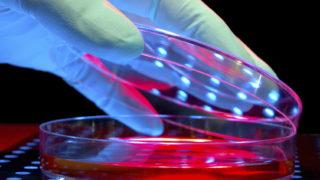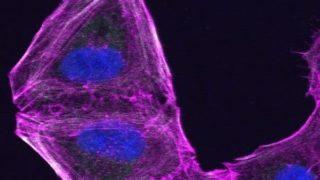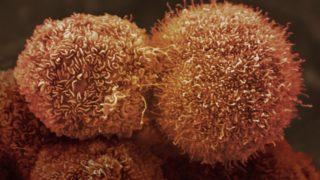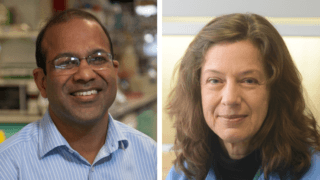Tag: Drugs
Search News
Categories
Archives
Immune therapy reduces risk of recurrence in aggressive breast cancer
27th February 2020
An immune therapy for the most aggressive form of breast cancer can substantially reduce the risk of the disease returning, according to a clinical trial led by Professor Peter Schmid of Barts Cancer Institute, Queen Mary University of London.
Read moreTackling resistance in skin cancer
13th January 2020
Researchers have found that melanoma cells fight anti-cancer drugs by changing their internal skeleton (cytoskeleton) – opening up a new therapeutic route for combating skin and other cancers that develop resistance to treatment.
Read moreIBIS-II – new results from international breast cancer study
12th December 2019
The Queen Mary University of London professor leading an international breast cancer study says anastrozole – rather than tamoxifen – should be the preventive drug-of-choice for post-menopausal women at increased risk of developing the disease.
Read moreKEYNOTE-522: Immune therapy for breast cancer
30th September 2019
Results of an interim analysis from the KEYNOTE-522 trial have shown a treatment combination of immunotherapy plus chemotherapy to improve response rates in patients with early triple-negative breast cancer. Prof Peter Schmid presented the results at the ESMO Congress 2019 in Barcelona, Spain.
Read moreAntibody therapy in pancreatic cancer
31st July 2019
Scientists have found a way to target and knock out a single protein that they have discovered is widely involved in pancreatic cancer cell growth, survival and invasion. Called avb6, the protein is present on the surface of more than 80 per cent of pancreatic ductal adenocarcinoma – the most common form of pancreatic cancer – and is vital to increase the successful growth and spread of the tumour cells.
Read moreNew research funded by PCRF
19th July 2019
The Pancreatic Cancer Research Fund is supporting two new research projects at the Barts Cancer Institute, Queen Mary University of London. The projects, led by Professor Hemant Kocher and Dr Gunnel Halldén, will aim to identify ways to enhance the efficacy of treatments for pancreatic cancer, to ultimately help those affected by this devastating disease.
Read more




